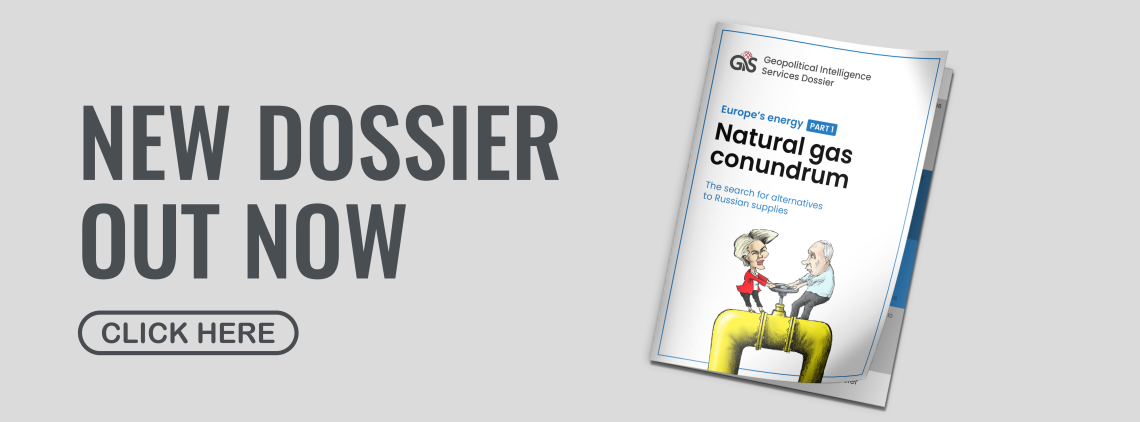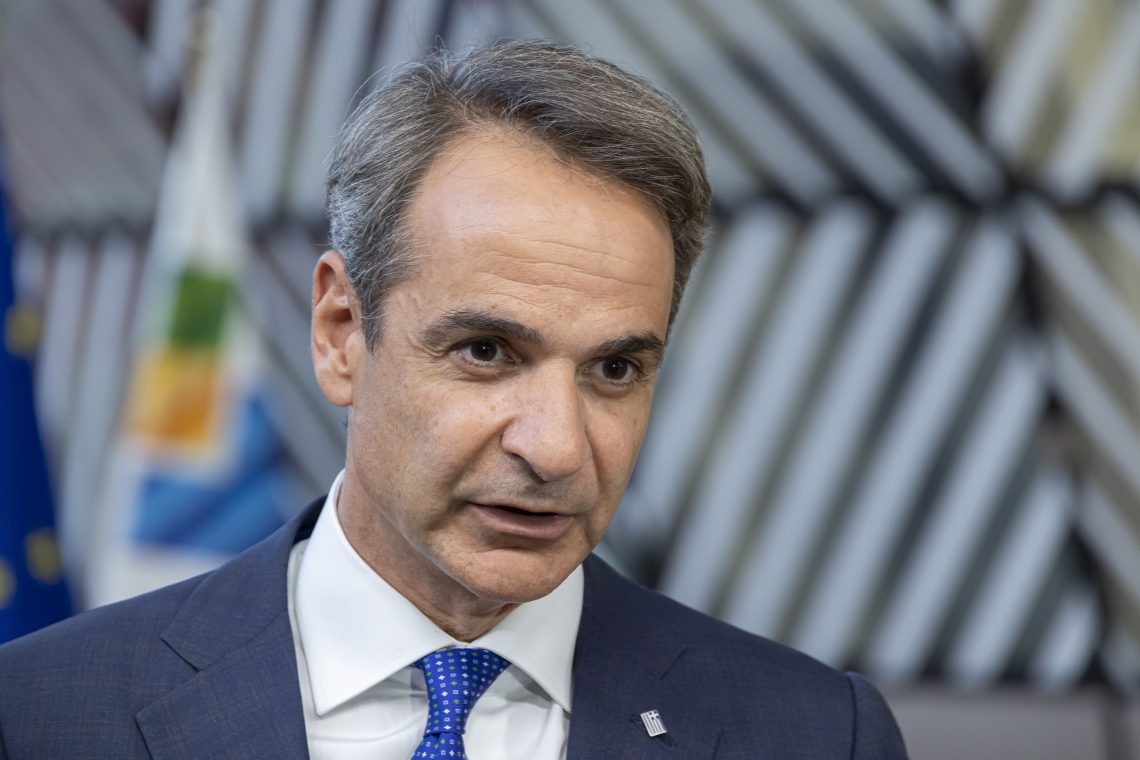Europe’s conservative wave
The popularity of conservative nationalist movements and political parties is on the rise. One shared position is support for more restrictive immigration policies.

In a nutshell
- Young people are voting more conservatively than some expected
- Many parties are also critical of the EU’s overcentralization
- The ideological makeup of the European Council will likely change
Recent political events in Europe confirm the growth and consolidation of conservative right-wing parties, a trend that started in 2015 in Poland and has been steadily growing since then. Only five of the 27 European Union member states are now under socialist-led governments: Portugal, Slovenia, Malta, Denmark and Germany.
Over the past year, the radical right, conservative and center-right parties have won elections or joined government coalitions in Italy, Finland, Greece and Sweden.
In the Netherlands, the BoerBurgerBeweging (BBB), Farmer-Citizen Movement, founded in 2019, is leading the polls. The stellar rise of the BBB, which fights against the closure or mandatory state appropriation of livestock farms, exposes some of the critical political cleavages driving the conservative and populist momentum.
In Germany, the far-right Alternative for Germany (AfD) has overtaken the ruling Social Democrats in the polls. And while 2027 is still far off, Marine le Pen, leader of the French right-wing opposition, is positioned to win the presidential elections.
Contrasting with mainstream media messages about the perils of radicalization, sizable segments of the European electorate seem willing to give these parties the benefit of the doubt. More importantly, the success of right-wing and conservative parties has been accompanied by changes in the patterns of electoral behavior. Defying the assumption that younger voters tend to be progressive, from Sweden or Germany to Italy, France or Spain, radical or conservative parties attract the vote of younger generations.

There are important differences in form and substance between the parties leading this shift: the center-right New Democracy in Greece is very different from the AfD; the Front National in France is not the same as the Fratelli d’Italia. However, it is possible to identify the ideological trends and political priorities driving this shift. With few exceptions, Christian democracy and the liberal right are losing ground to national populism and a revival of continental conservatism.
More by Teresa Nogueira Pinto
The EU’s imperfect choices on migration from Africa
Voter discontent raises hopes of Spanish opposition
Europe’s energy switch may boost African producers
Southern Europe
Greece, Spain and Portugal were at the epicenter of the eurozone crisis nearly 15 years ago. In these three countries, resistance to austerity policies was led by movements and parties on the radical left promising to transform “outrage” into “political change.” In Greece, Syriza won the 2015 elections; in Portugal, the Bloco de Esquerda became a crucial part of a parliamentarian agreement that allowed the socialists to form a government in 2015; in Spain, Podemos, which was founded in 2014, entered the government coalition led by the socialist Pedro Sanchez in 2019.
But the progressive wave is fading. In Portugal, the Bloco de Esquerda lost political relevance in the 2022 elections; in Greece, Syriza suffered a heavy defeat in the 2023 elections (the MeRA25 of Yanis Varoufakis did not even make it into parliament), and in Spain, Unidas Podemos risks being absorbed by the progressive Sumar coalition, led by the former vice president of the Spanish government.
These retreats of the left were accompanied by success on the right.
Like in the rest of Europe, the dynamics and parties leading this shift in the continent’s south differ in many ways. In some cases, they are in power. In others, they have become crucial to building government coalitions. In other nations like Portugal, they remain out of power but dominate the political debate.
In programmatic terms, however, they all have one thing in common: the defense of more restrictive immigration policies. Moreover, if we exclude the Greek New Democracy, there are other similarities: skepticism of European centralization, global governance and grand policies such as the new green deal; opposition to what they characterize as “wokeism,” and the resurrection of concepts such as sovereignty, nation, family, religious freedom, or Europe’s Christian roots and cultural identity. These parties are also populist, to the extent that they criticize a European and global “elite” for losing touch with the “common people” and their concerns.
The turning point
For the European conservative movement, the election of Giorgia Meloni in 2022 represented a turning point.
Italy has a unique political dynamic. But besides structural factors, the victory of the center-right coalition led by Fratelli d’Italia is a product of Prime Minister Meloni’s political skills and charisma and of its decision to remain in the opposition during the government of Mario Draghi (February 2021 – October 2022). Almost one year after coming to power, the fears which her victory prompted seem exaggerated. While she comes from the neofascist Movimento Sociale Italiano, her victory did not result in a march on Rome.
If Ms. Meloni, who defends a confederate Europe which would “do less and do better,” challenges European integration and the progressive left, she does not present a challenge to Italian democracy. Moreover, in a country where political stability remains the exception at a time marked by substantial domestic and international difficulties, Ms. Meloni has managed to maintain a high approval rating. She is regarded as one of Europe’s most respected leaders.
The case of Italy – as the most recent case of Spain – also exposes the increasing Europeanization of domestic politics. Shortly before the Italian elections, European Commission President Ursula von der Leyen stated that there were “tools” that could be used in case “things go in a difficult direction.”
This kind of friction is not new. While openly defying the principles of liberalism, from an electoral results perspective, Viktor Orban is one the most legitimate leaders in Europe. However, the EU questions the fairness of Hungarian elections and describes the Budapest regime as an “electoral autocracy.”

The Greek strategy
Like Italy, the case of Greece also provides hints about the current political shift.
While Prime Minister Kyriakos Mitsotakis managed to be reelected with an absolute majority, there are now eight parties in the Greek parliament, and the radical right won around 13 percent of the vote. But the electoral success of New Democracy derives from a combination of effective economic policies with restrictions on immigration, a critical issue in a frontline state that was severely impacted by the 2016 crisis.
The center-right party responded to the most critical claim of radical movements by addressing migration. Prime Minister Mitsotakis has systematically denounced the left’s “open-border logic,” referring to an “organized invasion of illegal migrants,” and promised to extend border walls and make the EU pay for them, which led his opponents to compare him to former United States President Donald Trump.
The Spanish dilemma
Spain illustrates another feature of the reconfiguring European political scene, exposing the dilemmas that catch-all parties face when negotiating with more ideological parties.
As the results of the July 2023 elections demonstrate, fragmentation has replaced the two-party system logic – under which the center-right People’s Party (PP) alternated with the center-left Spanish Socialist Workers’ Party (PSOE) – with the logic of political blocs. After the May 2023 autonomic elections, the PP was forced to establish government agreements or coalitions with the conservative Vox in some regions. And while the PP won the July 2023 general elections, the absence of a clear majority in the parliament suggests that new elections are almost inevitable.
Anticipating new elections and considering the fragmentation of the parliament, the PP would need the support of Vox, which calls for “safe borders” and is a critic of European integration and global governance, as reflected in the vocal rejection of the 2030 United Nations agenda. Being populist and conservative, Vox stands for lower taxes, vigorously defends private initiative, freedom of speech and education, and is critical of big government. It maintains, however, socially liberal traits. The party has created its union, Solidariedad, and defends protectionist measures to protect farmers and industries. Prime Minister Meloni participated in the party’s campaign, declaring that the time of the patriots had arrived in Europe. And like Ms. Meloni, Vox leader Santiago Abascal also criticizes the “bureaucrats in Brussels” and defends a Europe of “sovereign and free nations.”

Portugal – delayed effect?
Portugal is often a latecomer to political trends. The foundation of Chega in 2019, a right-wing populist party, ended the Portuguese exceptionalism. But the country remains a stronghold of socialism in Europe: in the 2021 elections, Prime Minister Antonio Costa was reelected with an absolute majority.
Socialists have been in power for 20 of the past 28 years. For historical reasons, the left dominated the political scene after the 1974 Carnation Revolution. That is reflected in the Social Democrats (PSD) representing the center-right position within the political spectrum.
The logic of cyclical alternation between socialists and social democrats was interrupted in 2015 when Antonio Costa built a parliamentary majority with the communists and the Left Bloc. Moreover, the emergence of a liberal party (Iniciativa Liberal) in 2017 and of a populist right-wing party in 2019 has contributed to reconfiguring the party system.
The government faces several challenges. While the deficit is now under control, the tax burden reached record highs in 2022, and real wages (already among the lowest within the EU) have decreased, leading to high emigration flows, especially among the younger and most skilled. The public transport, health and education systems are struggling with a lack of resources and strikes. In addition, the socialist government has been burdened with several corruption scandals and successive resignations.
Like in Spain, building an alternative will not be easy in this context. Portugal’s authoritarian experiment in the 20th century was also with right-wing authoritarianism, and the left evokes the threat represented by Chega, which is part of the European Identity and Democracy (ID) group, to dissuade a possible alternative. Hypothetical postelectoral coalitions have dominated the political debate.
Scenarios
Political events in southern Europe provide some hints on the political shifts across the EU, as right-wing conservative parties grow in polls, become necessary in building alternative political coalitions, or as in the case of Italy, come to power.
A defining feature of this wave is the diversity of its main actors. That may be explained by the fact that by rejecting European integration or global forms of governance around the issues of climate or gender and highlighting the nation-state – in its historical, cultural, social and economic specificities – these parties are more willing and able to adapt to specific circumstances.
Apparently, fundamental political questions regarding political legitimacy, sovereignty or cultural identity are once more on the table.
One weighty question is the impact these reconfigurations may have at the EU level, less than one year ahead of the elections for European Parliament seats.
Currently, the most likely scenario is of an implicit compromise between national-populist and the center-right. That means that Brussels may have to adjust to new political circumstances as the ideological composition of the European Council – and probably of the European Parliament – shifts toward a conservative right, more skeptical of European federalism. In practice, integrationist pressures will be moderated by the claims of sovereigntists, and issues like migration are expected to take precedence over climate policies.
The European center-right, represented by the European People's Party (EPP) group, will likely face the dilemma that many of its members are facing across Europe: to establish or not coalitions with parties on the conservative and identitarian right, represented by the European Conservatives and Reformists (ECR) group and the Identity and Democracy group.
This dilemma will also be shaped by how the different European right-wing blocs position themselves ahead of the 2024 polls. At this point, the ECR is the group that most benefits from the political momentum.
Politics is like a pendulum, and the consequence of this scenario could be a new balance point. Like center-right parties across Europe, the EPP will absorb criticism while driving this conservative wave. At the same time, as seen with Fratelli d’Italia or the National Rally, populist and conservative parties are becoming more institutionalized as they come to power.








